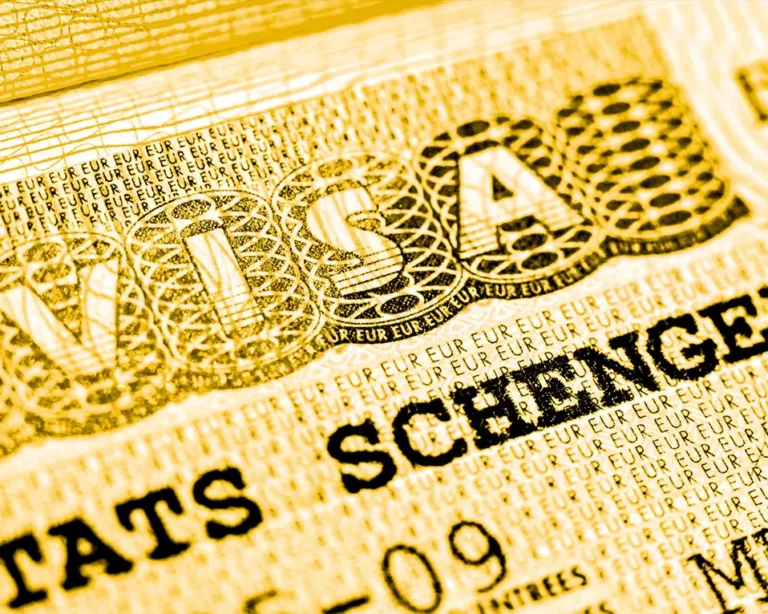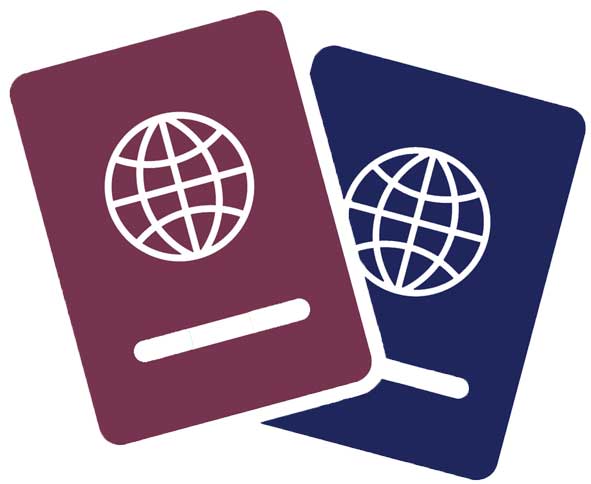Being a dual citizen of Malta and holding an EU (European Union) passport has significant benefits. But at tax time, we are often asked if Maltese dual citizens are required to pay taxes in Malta, how can you avoid double taxation, and just what kind of taxes you expected to pay if any at all.
Fortunately, for the vast majority of dual citizens taxes are not an issue. As long as you do not legally reside in Malta for over 183 days out of the year and are not earning your income in Malta then you are NOT required to file taxes in Malta.
For those that do legally reside in Malta for over 183 days out of the year and earn their income in Malta, we will walk you through how to determine if you owe taxes in Malta, which types of income are taxed, how tax treaties work, and which forms you’ll file. As always, if you have detailed questions about your specific situation, it’s best to consult a Maltese tax professional.
Will I owe Maltese taxes as a dual citizen?
Tax liability in Malta depends on two main factors: residency and domicile status. Let’s break them down:
- Residency: You’ll get tax residency if you lived in Malta for 183 days or more in the tax year. If you are an EU or non-EU national who obtained residence status for work or personal reasons, you may also fall under Maltese tax residency rules.
- Domicile: You have a Maltese domicile if Malta is your permanent home (e.g., you were born here or legally switched your domicile to Malta).
Because dual citizens can have varying domicile statuses, it’s crucial to understand which category you fall into. If you are domiciled in Malta, you’re taxed on your worldwide income. If you’re not domiciled (but still a resident), you’re taxed on your Maltese-source income plus any foreign income you remit to Malta.
How does this affect non-residents?
If you aren’t a Maltese tax resident, you’ll typically only owe taxes on income arising in Malta—like salary from a Maltese employer, or rental income from properties located in Malta. You wouldn’t pay tax on foreign income you keep abroad unless you bring it into Malta (assuming you aren’t domiciled in Malta).
Tax Treaties Are the Best Way to Avoid Double Taxation
If you want to avoid paying taxes twice on the same income, you need to know about double-tax treaties. These treaties let you:
- Credit taxes paid in one country against the taxes owed in another.
- Determine which country has taxing rights over particular income types, like self-employment, investment gains, etc.
Malta currently has tax treaties with over 70 countries, including the United States, the United Kingdom, Canada, Australia, and many EU nations. If your second country of citizenship is on that list, you likely qualify for some form of tax credit or exemption.
The U.S.-Malta Tax Treaty
If you’re a U.S. citizen and also hold Maltese citizenship, you can use the U.S.-Malta Tax Treaty to avoid paying on the same income in both countries. For instance:
- Foreign Tax Credit (Form 1116): You can generally claim a credit on your U.S. return for taxes paid in Malta.
- Tie-Breaker Rules: The treaty outlines ways to settle which country taxes you if both have a valid claim.
Keep in mind that, no matter where you live, the U.S. still requires you to file an annual tax return (if your income exceeds certain thresholds). You’ll also need to file FBAR (Foreign Bank Account Report) if you hold more than $10,000 in foreign accounts.
Using the FEIE (Foreign Earned Income Exclusion) for U.S. Citizens
U.S. citizens with Maltese residency have an additional way to avoid double taxation: the Foreign Earned Income Exclusion (FEIE). This lets you exclude up to $120,000+ (the number typically ticks up each year) of foreign earned income from U.S. federal income tax if you:
- Pass the Bona Fide Residence Test or Physical Presence Test.
- File IRS Form 2555 with your U.S. return.
You can combine the FEIE with tax treaties, but remember, it applies only to earned income—not passive or investment income. If you have foreign rental properties or capital gains, you might consider the Foreign Tax Credit route instead.
How do I calculate my Maltese income tax?
Malta has a progressive tax system. In other words, it has brackets that apply incrementally. Below are the 2024 brackets (these numbers can change, so confirm current rates):
- 0% on income up to €9,100
- 15% on income between €9,101 and €14,500
- 25% on income between €14,501 and €60,000
- 35% on income above €60,001
If you’re employed in Malta, your employer often withholds PAYE (Pay As You Earn) taxes. At the end of the year, you file a return to reconcile any difference.
Other Common Taxes in Malta
Social Security Contributions
Employers and employees each pay a percentage of income toward Maltese social security.
Self-employed people will pay 15%.
Capital Gains Tax
Malta taxes capital gains on certain assets, like property or shares.
Rates and exemptions vary; if you’re non-domiciled, foreign capital gains might be exempt unless you bring those funds into Malta.
VAT (Value-Added Tax)
18% standard rate applied on goods and services in Malta. But that rate goes down for essentials (like pharmaceuticals and certain foods). While VAT usually affects businesses directly, it’s a cost individuals see reflected in prices.
Property Transfer Tax
When selling real estate in Malta, there’s often a final withholding tax on the sale price, or capital gains tax if you profit.
Rates differ based on residency status and whether the property was your main residence.
Are there Net Wealth, Inheritance, and Gift Taxes in Malta?
No. Maltese dual citizens do no owe inheritance, estate, or net worth taxes in Malta. This is why it’s often seen as a tax haven in Europe.
How do I file Maltese taxes as a dual citizen?
Most individuals file a personal tax return each year covering January 1 to December 31. You can file:
- Online via the Maltese Commissioner for Revenue’s e-filing system.
- By paper return, though electronic filing is increasingly the norm.
- Through a Maltese tax professional, who will handle your PAYE, calculations, and final submissions.
If you have additional schedules—like for rental properties or business income—include them with your main return.
What’s the deadline for Maltese taxes?
Tax deadlines can vary depending on how you file. Generally, it’s the end of June.
These dates shift slightly from year to year, so always confirm the exact deadline with the Commissioner for Revenue.
Ready to Handle Your Maltese Taxes?
Taxes (especially with two sets of rules) can feel overwhelming, but some careful planning and an understanding of tax treaties will save you from paying twice on the same income.
By knowing your residency and domicile status, leveraging tax credits under the U.S.-Malta Tax Treaty (or other relevant treaties), and possibly using the FEIE, you can minimize your overall burden.
For more information on how to enjoy your Maltese dual citizenship—whether that’s tips on visas or how to become a citizen—visit our blog.
Disclaimer: This article is for general information only and should not be considered legal or tax advice. Since tax laws frequently change, it is recommended to consult a qualified lawyer or tax professional to ensure the best course of action for your specific needs.
This page was last updated with help by Marco Permunian




